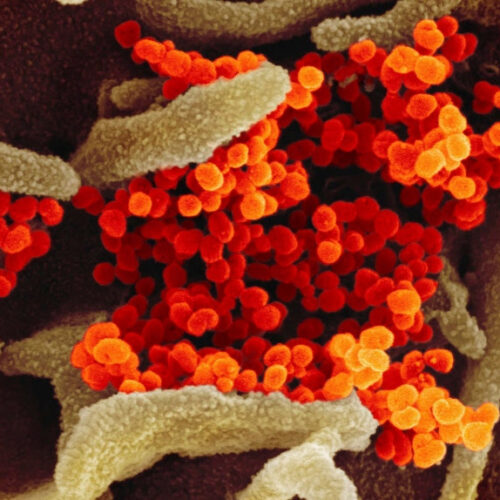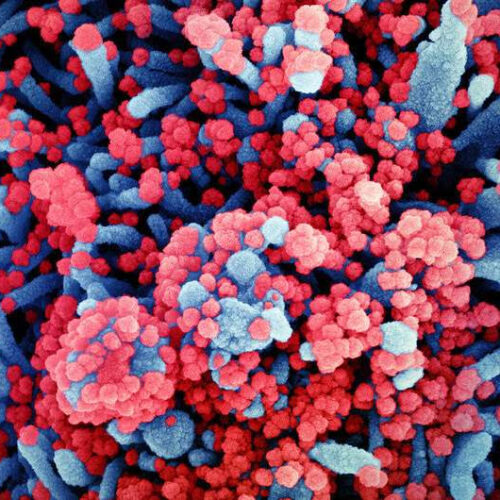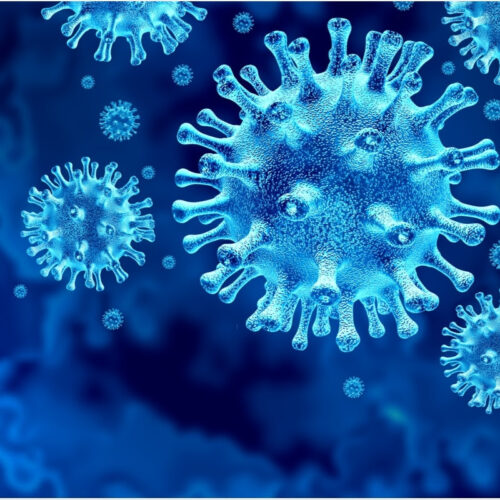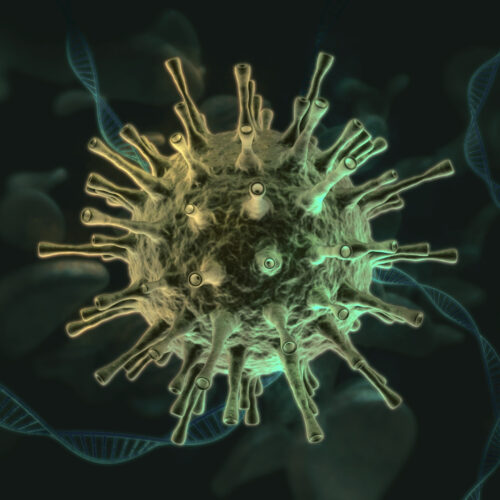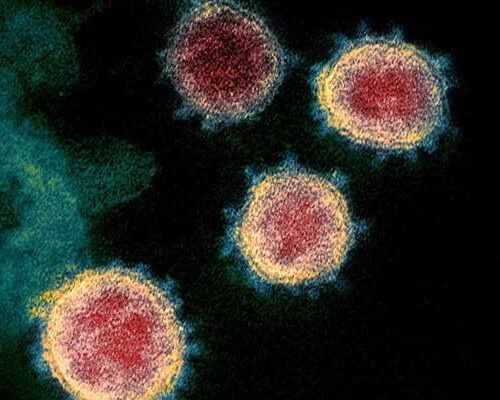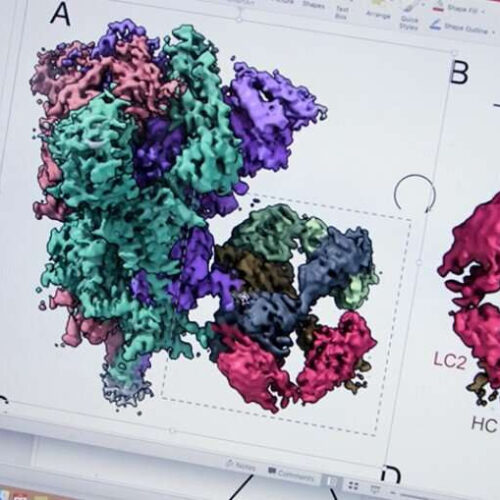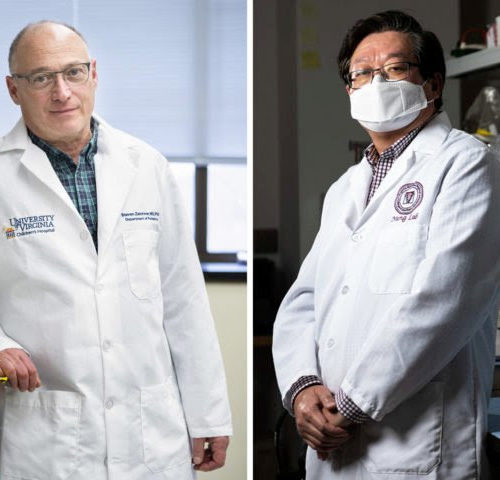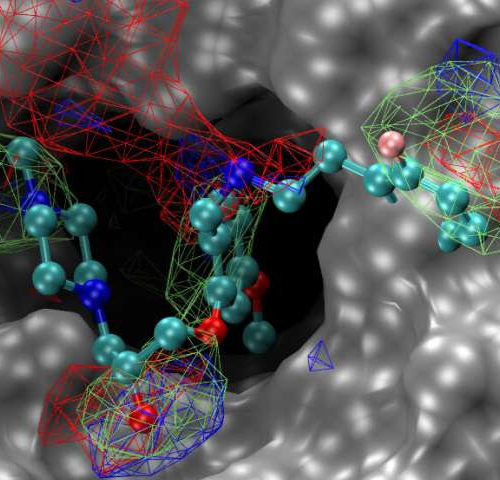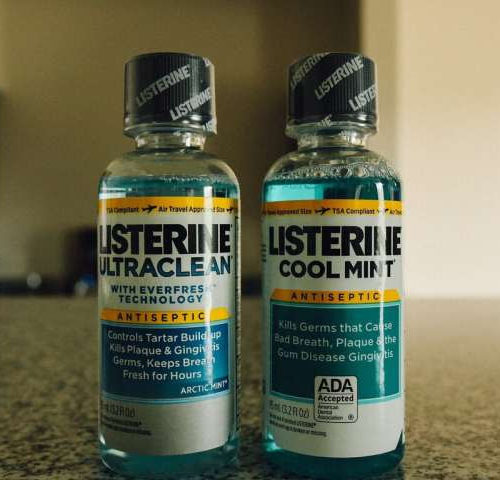FILE – This undated electron microscope image made available by the U.S. National Institutes of Health in February 2020 shows the Novel Coronavirus SARS-CoV-2, orange, emerging from the surface of cells, green, cultured in the lab. (NIAID-RML via AP) Noushin Ziafati CTVNews.ca Writer-Producer Follow | Contact Published July 30, 2023 8:02 a.m. MST Share Newly discovered antibodies...
Tag: <span>coronaviruses</span>
A potential antiviral for SARS and SARS-like coronaviruses
Both SARS-CoV-1, the virus that caused the 2003 outbreak of Severe Acute Respiratory Syndrome (SARS), and SARS-CoV-2, which causes COVID-19, originate from a group of betacorona viruses known as “subgroup 2b.” Coronaviruses from this subgroup have been highlighted as having significant potential to cross from animal hosts to humans with deleterious consequences, COVID-19 being the...
Exposure to harmless coronaviruses boosts SARS-CoV-2 immunity
by University of Zurich Colorized scanning electron micrograph of a cell (blue) heavily infected with SARS-CoV-2 virus particles (red), isolated from a patient sample. Image captured at the NIAID Integrated Research Facility (IRF) in Fort Detrick, Maryland. Credit: NIAID The population’s immunity to SARS-CoV-2, achieved either through infection or vaccination, is crucial to overcome the COVID-19...
Xanthohumol as a potent pan-inhibitor for various coronaviruses
By Susha Cheriyedath, M.Sc. Nov 12 2021 Reviewed by Danielle Ellis, B.Sc. Severe acute respiratory syndrome coronavirus 2 (SARS-CoV-2) is a novel coronavirus infecting humans and livestock worldwide. Not all coronavirus infections cause major symptoms but some like SARS-CoV-2, SARS-CoV, and MERS-CoV can cause serious disease. To date, the SARS-CoV-2 pandemic has caused more than...
Scientists develop new strategy to fight coronaviruses, vaccinate against future pandemics
by: StudyFinds.org via Nexstar Media Wire Posted: Oct 17, 2021 / 03:03 PM EDT / Updated: Oct 17, 2021 / 03:03 PM EDT FILE – Single coronavirus cell with DNA strands and white blood cells (Photo: Getty Images) SUITA, Japan — Scientists have recently developed a vaccine that could end pandemics caused by diseases that...
New drug target found for future and current coronaviruses
by Northwestern University A colorized scanning electron micrograph of the SARS-CoV-2 virus. Credit: NIAID Scientists are already preparing for a possible next coronavirus pandemic to strike, keeping with the seven-year pattern since 2004. In future-looking research, Northwestern University Feinberg School of Medicine scientists has identified a novel target for a drug to treat SARS-CoV-2 that also...
New vaccine blocks COVID-19 and variants, plus other coronaviruses
by Sarah Avery, Duke University School of Nursing Credit: Duke University School of Nursing A potential new vaccine developed by members of the Duke Human Vaccine Institute has proven effective in protecting monkeys and mice from a variety of coronavirus infections—including SARS-CoV-2 as well as the original SARS-CoV-1 and related bat coronaviruses that could potentially cause...
Novel vaccine development strategy may offer broad protection from coronaviruses
A COVID-19 vaccine that could provide protection against both existing and future strains of the COVID-19 virus, and other coronaviruses, and cost about $1 a dose has shown promising results in early animal testing. Vaccines created by UVA Health’s Dr Steven L. Zeichner and Virginia Tech’s Dr Xiang-Jin Meng prevented pigs from being becoming ill...
Researchers identify promising new compounds to potentially treat novel coronaviruses
by Deborah Kotz, University of Maryland School of Medicine The compound UMB18 (multi-color) binds to the 3D structure of SKI protein complex shown in silver. Researchers at the University of Maryland School of Medicine (UMSOM) and School of Pharmacy (UMSOP) have discovered new drug compounds to potentially treat the novel coronavirus that causes COVID-19. The compounds disrupt...
Mouthwashes, oral rinses may inactivate human coronaviruses
by Pennsylvania State University Certain oral antiseptics and mouthwashes may have the ability to inactivate human coronaviruses, according to a Penn State College of Medicine research study. The results indicate that some of these products might be useful for reducing the viral load, or amount of virus, in the mouth after infection and may help to...

